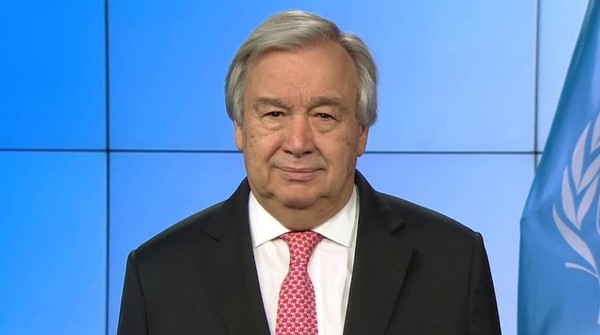This year marks 75 years since the establishment of the United Nations (UN), the organization created after the Second World War with the goal of preventing another disastrous global war. Signed in 1945, the UN charter sought to promote international peace and security, social progress and better standards of life, and higher regard for human rights. Several decades later, however, the UN is yet to reach its goal of achieving world peace. It may have successfully prevented a nuclear war from erupting between the most important world powers, but peace is still far from reach in countries such as Syria, Yemen, Libya, and Afghanistan, where long-standing conflicts continue to result in the loss of lives. A global pandemic, looming economic crisis, growing refugees, surfacing xenophobia and racism, tension between the two biggest economies, and the warming planet constitute a long list of current global woes that mar the celebration. Gueterres’ call for a global ceasefire in March was largely unheeded, and his plea for contributions to a 10-billion-dollar emergency coronavirus response disappointingly amounted to only a quarter of the goal. The UN’s 75th anniversary will most likely be commemorated in a somber, rather than celebratory mood.
The UN is facing intense scrutiny over its effectiveness and relevance. In times of global turmoil when coordinated global action is most needed, the world seems more divided than ever. A belief in multilateralism, which lies at the very foundation of the UN, seems to be swiftly falling apart with the recent ascent of isolationist leaders. Under President Trump’s “America First” approach, the United States announced its withdrawal from the World Health Organization and renounced the Paris Agreement. While the United States is refusing to embody its role as a leading nation in the global sphere, China is focused on asserting more control within the United Nations. Chinese nationals have been systematically positioned at the head of a wide range of UN agencies, from the Food and Agricultural Organization (FAO) to the Department of Economic and Social Affairs (UN DESA). UN Secretary General Antonio Gueterres described the relationship between the United States and China as dysfunctional, and expressed concerns that their rivalry is perpetuating a larger divide on a global scale. He further noted that he would like to see the major powers put aside their differences, come together, and “lead the international community in a coherent response to the challenges that we are facing”.
Instead of announcing a bold reform agenda, Gueterres has focused the UN75 festivities on two initiatives: first, to win intergovernmental endorsement for a general declaration of principles in support of multilateral cooperation; second, to consult with global civil society on the UN’s path for the next quarter century — with the aim of presenting the findings at the virtual UN General Assembly on September 21. He described the UN75 initiative as a “global reality check” to spark conversations on building a better future. The UN75 team is collaborating with a wide multi sector network, including UN Resident Coordinators from different countries, to engage with a diverse global audience. In his speech given during the G20 international summit, Gueterres emphasized the need for solidarity, and how managing the crisis presents a unique opportunity; done right, the recovery from the pandemic could steer us towards a more sustainable and inclusive path.

At a time of great disruption, it is easy to be cynical about the future of the organization. Yet, not all hope is lost. The current pandemic serves as a stark reminder of the need for cooperation across borders, sectors, and generations. We are standing at the end of the diverging road between cooperation and isolation. A global dialogue and unified response will determine how fast the world recovers, whether we can achieve the Sustainable Development Goals, and how well we can handle pressing challenges — from the climate crisis to inequalities, from new forms of violence to the rapid changes in technology and demographics. The UN has not fulfilled the promises of its charter written 75 years ago. Humanity still suffers from the scourges of war and human rights violations. In the next 25 years or so, the UN will have to prove its validity by uniting our strength to maintain international peace and security and promote economic and social advancement of all people.

